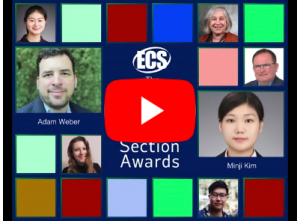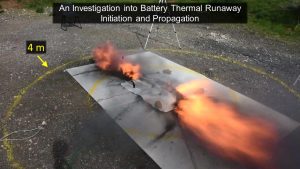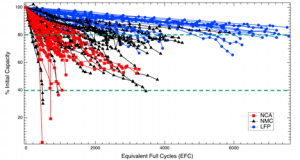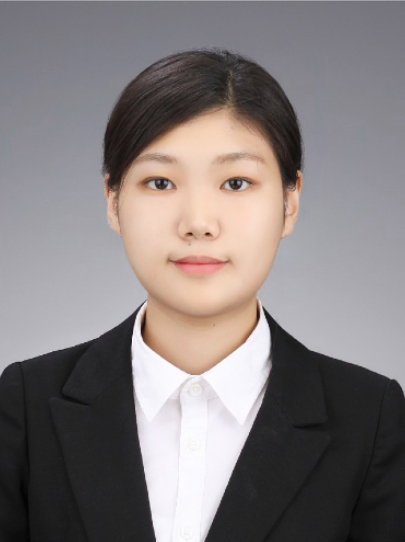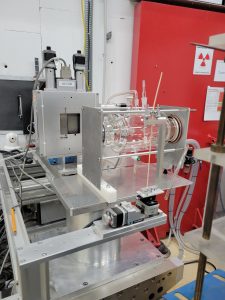Congratulations to the spring ECS award winners. Through Society Awards, Division Awards, Student Awards, and Section Awards, the Society’s Honors & Awards Program commemorates outstanding technical achievements in electrochemical and solid state science and technology, and recognizes exceptional service to the Society.
Anu Adamson and Shipeng Jia Receive 2024 Canada Section Student Award
Posted on July 1, 2024 by Genevieve Goldy Congratulations to the 2024 ECS Canada Section Student Award winners, Anu Adamson, Dalhousie University, for her contributions to the understanding and eliminating self-discharge in Li-ion and Na-ion batteries, and Shipeng Jia, McGill University, for contributions to the field of electrochemistry and energy storage materials and excellent achievements in advancing sodium and lithium-ion battery research.
Congratulations to the 2024 ECS Canada Section Student Award winners, Anu Adamson, Dalhousie University, for her contributions to the understanding and eliminating self-discharge in Li-ion and Na-ion batteries, and Shipeng Jia, McGill University, for contributions to the field of electrochemistry and energy storage materials and excellent achievements in advancing sodium and lithium-ion battery research.
Award winners
ECS Webinar: “An Investigation into Battery Thermal Runaway Initiation and Propagation”
Posted on July 1, 2024 by Kellie GilbertECS named 13 new members to the 2024 class of Fellows of The Electrochemical Society. Every year since the honorary designation was founded in 1989, up to 15 members are selected as Fellows in recognition of their outstanding scientific achievements, leadership, and active participation in ECS affairs.
The 2024 ECS Fellows are (listed alphabetically):
Justin C. Bui Receives 2024 ECS San Francisco Section Daniel Cubicciotti Student Award
Posted on June 3, 2024 by Genevieve Goldy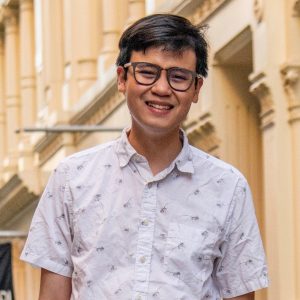 Congratulations to the 2024 San Francisco Section Daniel Cubicciotti Student Award Recipient, Justin C. Bui of the University of California, Berkeley and Lawrence Berkeley National Laboratory. The award recognizes his outstanding work on developing continuum models, understanding the impact of transport and catalysis in bipolar ion-conducting polymer membranes, and elucidating the influence of the microenvironment on the activity and selectivity for the electrochemical reduction of CO2.
Congratulations to the 2024 San Francisco Section Daniel Cubicciotti Student Award Recipient, Justin C. Bui of the University of California, Berkeley and Lawrence Berkeley National Laboratory. The award recognizes his outstanding work on developing continuum models, understanding the impact of transport and catalysis in bipolar ion-conducting polymer membranes, and elucidating the influence of the microenvironment on the activity and selectivity for the electrochemical reduction of CO2.
Justin C. Bui
Justin C. Bui is a fifth year PhD candidate at UC Berkeley and researcher in the Liquid Sunlight Alliance U.S. Department of Energy Hub at Lawrence Berkeley National Laboratory. Justin earned his BS in Chemical Engineering from Columbia University, working with Prof. Daniel Esposito to fabricate membrane-less electrolyzers for sustainable hydrogen production from seawater. At Berkeley, Justin’s research with Prof. Alexis Bell and Dr. Adam Weber focuses on the use of continuum-level theory to understand the impact of transport and catalysis in bipolar ion-conducting polymer membranes, as well as to elucidate the influence of the catalytic microenvironment on the activity and selectivity of carbon dioxide (CO2) electroreduction to value-added chemical products. Throughout his PhD, Justin worked closely with experimentalists to drastically advance the development of carbon capture and conversion devices. Justin received prestigious National Science Foundation (NSF) and National Defense Science and Engineering Graduate (NDSEG) research fellowships. Outside of the lab, Justin developed inclusive, experiential curricula to introduce K-12 students to electrochemistry. He will soon start as a postdoctoral scholar at the California Institute of Technology, working with Prof. Karthish Manthiram to develop electrochemical reactors capable of oxidatively activating nitrogen to make plastics and fertilizer precursors directly from air. (more…)
ECS Webinar: “Degradation of Commercial Lithium-Ion Cells Beyond 80 Percent Capacity”
Posted on May 28, 2024 by Kellie GilbertReed M. Wittman
Senior Member, Technical Staff
Energy Storage Technology and Systems Group
Sandia National Laboratories
Yuliya Preger
Principal Member, Technical Staff
Energy Storage Technology and Systems Group
Sandia National Laboratories
Date: June 12, 2024
Time: 1000–1100h ET
The Society and ECS Korea Section congratulate the 2024 Korea Section Student Award winner, Minji Kim. The award recognizes Minji’s significant contributions to elucidating the degradation mechanisms of cathode materials in lithium ion batteries.
Join us in congratulating Minji! We wish her continued success in her electrochemistry and solid state science studies and research.
Minji Kim
Minji Kim is enrolled in the integrated Energy Science and Engineering MS and PhD program at Sungkyunkwan University (SKKU), where she started in the fall of 2018. Her research under Professor Won-Sub Yoon’s supervision at the SKKU Energy Conversion & Storage Materials Laboratory (ECSML) focuses on analyzing the capacity degradation mechanisms of cathode materials for lithium ion batteries using synchrotron x-ray. Her investigation of capacity degradation during long-term high-temperature cycles in a pouch full cell system, employing commercial Ni-rich layered cathode materials and graphite anode materials, was published in 2023 in Advanced Energy Materials (13, 41, 2302209). Minji also conducts ongoing research on various mechanisms of both commercial cathode materials and next-generation cathode materials, including Li-rich disordered materials. (more…)
“Electrochemical Atomic Force Microscopy of Battery Interfaces”– Webinar Q&A with Dr. Thomas S. Miller
Posted on April 11, 2024 by Kellie Gilbert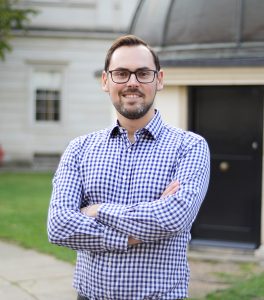 The Electrochemical Society hosted Thomas S. Miller’s live webinar, “Electrochemical Atomic Force Microscopy of Battery Interfaces,” on March 27, 2024. Dr. Miller took audience questions during a live Question and Answer following the presentation, then kindly answered in writing, questions not answered during the broadcast. See his responses below.
The Electrochemical Society hosted Thomas S. Miller’s live webinar, “Electrochemical Atomic Force Microscopy of Battery Interfaces,” on March 27, 2024. Dr. Miller took audience questions during a live Question and Answer following the presentation, then kindly answered in writing, questions not answered during the broadcast. See his responses below.
NOTE: Registration is required to view the webinar replay.
ECS Webinar: “Combining electrochemistry and neutron reflectometry in situ”
Posted on April 2, 2024 by Kellie Gilbert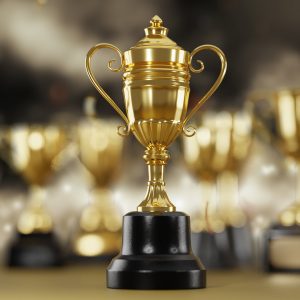 ECS’s robust awards and recognition program recognizes outstanding technical achievements in electrochemical, solid state science and technology at every career stage and recognizes exceptional service to the Society. Categories of awards include ECS Society, Division, Section, and Student Awards.
ECS’s robust awards and recognition program recognizes outstanding technical achievements in electrochemical, solid state science and technology at every career stage and recognizes exceptional service to the Society. Categories of awards include ECS Society, Division, Section, and Student Awards.
Nominations are now being accepted for the awards listed below. Please visit the award webpages for eligibility criteria, nomination guidelines, and award prizes. (more…)


